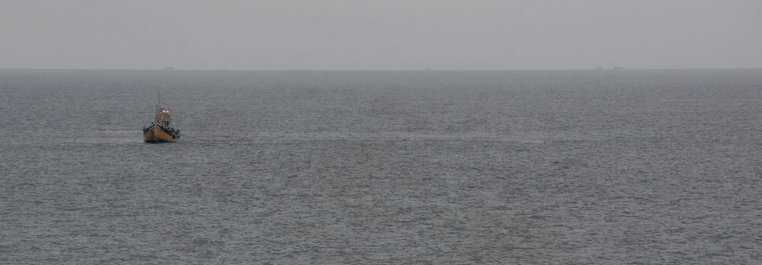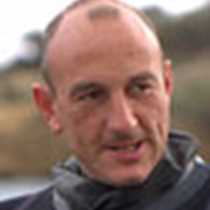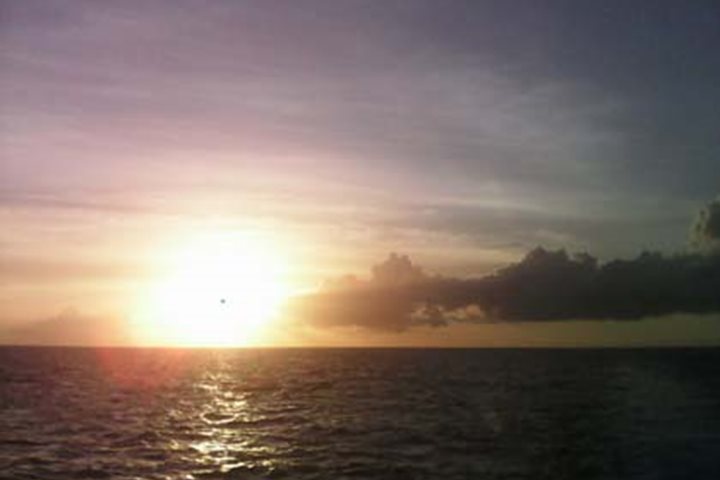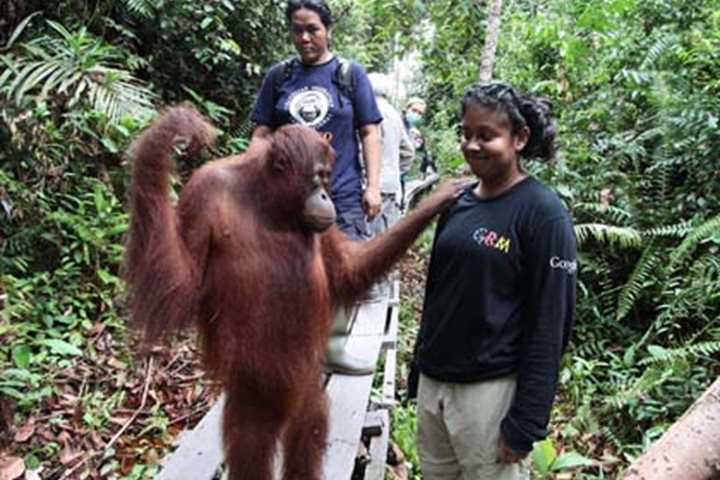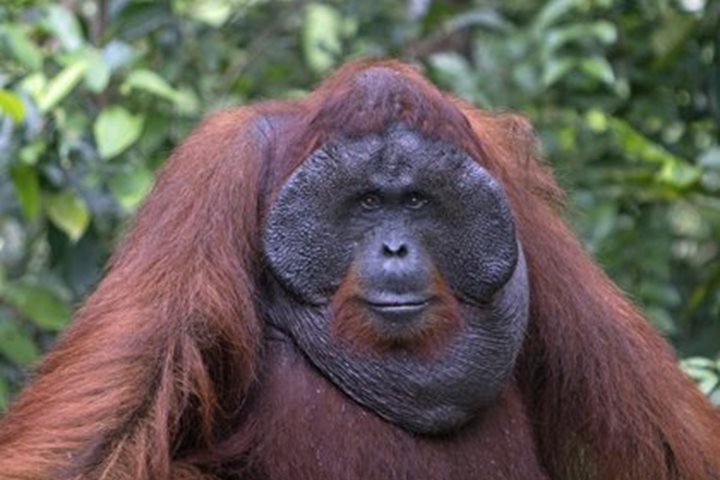We woke up to grey skies very low on the horizon, which led to a very quiet sunrise. Most of us were planning to sleep in a little this morning, to catch up after yesterday’s activity-filled day in Sabang, Pulau Weh, and to prepare for tomorrow’s expeditions in Belawan.
Before breakfast, everything was even quieter than usual, with only a few dolphins playing in the bow wave, far less than usual, and very few flying fish scattering in front of the ship. Our eyes could glide on the horizon line all the way to the clouds in the distance, only interrupted by the silhouette of ships here and there, some of them cargo carriers, but most of them much smaller fishing boats.
As we got closer to the shore, more and more of the small fishing boats appeared, trailing lines or nets, some of them laying them close to the surface. We also saw numerous floating reefs, contraptions of cobbled together junk kept afloat just below the surface to attract a population of small fish and crustaceans. This creates an ecosystem that eventually attracts bigger fish that are interesting to the local fishermen.
There were also bigger fishing boats. Where the smaller ones seemed to be dedicated to subsistence fishing, the bigger ones were obviously commercial operations, some of them with freezing facilities onboard.
The population of Indonesia is comparable to the population of Brazil, albeit with a slightly higher growth, and a GDP just above three thousand dollars per annum. Harvesting resources from the sea is vital for the population.
According to Wikipedia, “In 2012, Indonesia's fishery production reached approximately 8.9 million tonnes, of which inland and marine catch accounted for about 5.8 million tonnes and aquaculture 3.1 million tonnes in addition to 6.5 million tonnes of seaweeds.”
And recently, the Guardian reported that “Indonesia’s popular new president Joko Widodo has publicly stated there are 5,000 foreign fishing boats operating illegally in Indonesian waters, costing the local fishing industry US$24bn (£16bn). According to Andrew Harvey, a sustainable fisheries advisor for USAID, “Widodo and fisheries minister Susi Pudjiastuti are taking very positive steps to address illegal, unreported, and unregulated (IUU) fishing, and in the long run this has tremendous potential.”
While it is easy to feel outraged at the sight of so many fishing boats in such a narrow and shallow stretch of coastal waters, sustainable exploitation of existing resources is an issue that will become more pressing in the near future.

